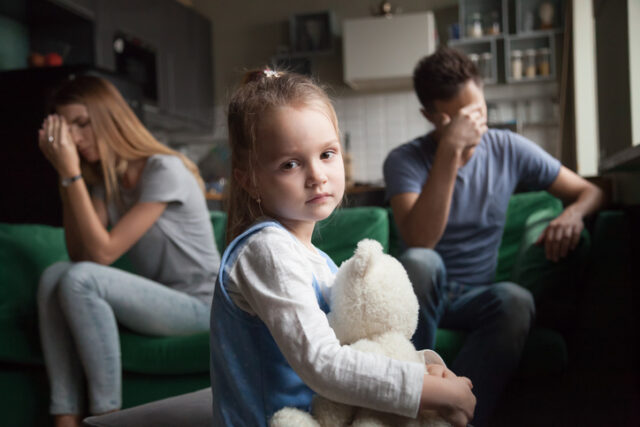When a parent carries emotional wounds they haven’t worked through, even simple conversations can feel threatening.

Instead of hearing curiosity, honesty, or boundaries, they may hear criticism or disrespect. It’s not necessarily down to what you say; it’s about what it triggers in them. This kind of dynamic makes honest communication tough, especially for adult children trying to heal without causing more hurt. Unfortunately, these relatively innocent things often feel like attacks to emotionally wounded parents, even when they’re not meant that way.
1. “I just need some space.”

This isn’t an insult. Sometimes, space is healthy and necessary. Unfortunately, a wounded parent may hear it as rejection or abandonment, especially if they tie their worth to being needed or present. They might respond with guilt-tripping, silence, or clinginess, not realising that respecting space actually helps the relationship breathe, not break.
2. “That hurt me when you said that.”

To most people, this would be a moment for reflection or an apology. However, for a parent with unresolved emotional baggage, it might sound like an attack on their character or parenting. They can become defensive or angry, not because they don’t care, but because being confronted triggers shame they don’t know how to sit with.
3. “I see things differently now.”

This can be meant in a mature, grounded way—acknowledging growth or healing. However, a parent who equates disagreement with disloyalty may hear this as a rejection of their worldview. It can lead them to feel like they’re being blamed or invalidated, even when you’re just sharing your truth. That doesn’t mean you should stop sharing it, by the way—it’s up to them to deal with their issues.
4. “I’d rather not talk about that.”

Setting boundaries around certain topics is normal, but a wounded parent might interpret this as secrecy, mistrust, or emotional distance. They may push harder or take it personally, rather than seeing it as you trying to protect your own peace or regulate the conversation. You’re allowed to keep certain things to yourself or insist that some topics are off-limits.
5. “I’m trying to break the cycle.”

To someone working on generational healing, this statement is a sign of growth. Sadly, for a parent who hasn’t done the same reflection, it can sting deeply, as if you’re saying they failed entirely. They may not realise that breaking a cycle isn’t about blame—it’s about making sure old pain doesn’t keep repeating itself.
6. “That wasn’t okay.”

Calling something out that crossed a line is a healthy thing to do. However, a parent who’s emotionally raw may hear this as a character assassination. They might double down, deny it ever happened, or accuse you of rewriting history—anything to avoid facing their own discomfort with being called out. Keep on doing it, though. Eventually, it might start to sink in.
7. “I’m not comfortable with that anymore.”

Changing your boundaries or preferences over time is natural, but wounded parents may struggle to adapt. To them, this can sound like you’re discarding everything they taught you. They may view it as a personal insult instead of seeing it as you evolving or protecting your well-being. Hold firm—you matter.
8. “I don’t want to talk about other family members.”

This can be about protecting your own peace or avoiding gossip, but a parent might take it as you pulling away or refusing to join in their emotional alliances. In families with unspoken power dynamics, refusing to participate in the usual emotional script can feel threatening to those who still live by it.
9. “That’s not how I remember it.”

Different memories don’t always mean someone’s lying—they just reflect different perspectives. However, when you challenge a parent’s version of events, it can make them feel like you’re accusing them of being the villain. This can spark denial, anger, or even emotional withdrawal. For them, memory is tied to identity, and challenging one can rattle both.
10. “I learned that in therapy.”

For someone on a healing journey, therapy is empowering. However, for a parent who sees mental health work as a threat or overreaction, this might sound like you’ve been brainwashed into blaming them. It can create a sense of discomfort, mockery, or resistance, even if your intention is simply to share what’s helped you understand yourself better.
11. “I want to do things differently with my own kids.”

Having your own parenting approach is normal, but wounded parents can hear this as a harsh judgement of how they raised you. Even if you say it with kindness, they may respond with guilt, competition, or passive-aggressive comments about how things were “fine back then.” Raise your kids in a way that feels right to you, end of story.
12. “That made me feel controlled.”

Pointing out controlling behaviour can be a vulnerable and important step, but it often makes wounded parents feel exposed. They may not see themselves as controlling—just caring, protective, or “doing their best.” This can trigger a lot of defensiveness and denial, even if your goal is just to name how a certain pattern made you feel.
13. “I need you to respect that boundary.”

To you, this might be a calm and reasonable request. But to a parent who equates closeness with access, it can feel like you’re shutting them out or punishing them. They might try to test the boundary or guilt you into relaxing it, not realising how much damage that pushback does.
14. “You’re not listening to me.”

This can be a direct and honest way to point out emotional disconnect, but it can hit hard for someone who already struggles with feeling unseen or unappreciated. Wounded parents might lash out or retreat emotionally, interpreting your comment as you saying they’re a bad parent, even if that’s not your message at all.
15. “I need to do what’s right for me.”

This is a perfectly healthy statement, but when a parent is stuck in a pattern of sacrifice or guilt-based love, it can feel selfish or cold to them. They might interpret it as you putting yourself above the family—or worse, turning your back on the way they raised you to be “selfless.”
16. “That wasn’t love—that was control.”

This one can be especially painful to hear. For many wounded parents, controlling behaviour comes from a place of deep fear or insecurity. To be told it didn’t feel like love can send them into deep defensiveness or grief. However, for the person saying it, it’s often a huge emotional truth they’ve only just found the courage to voice. And naming that truth can be the beginning of healing, even if it’s met with silence or pushback.




